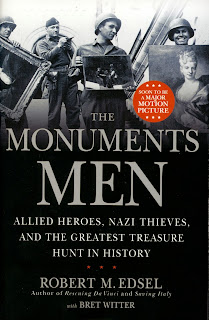Dividing Hearts:
The Removal of Jewish Children from Gentile Families in
Poland in the Immediate Post Holocaust Years
by Emunah Nachmany Gafny
The Removal of Jewish Children from Gentile Families in
Poland in the Immediate Post Holocaust Years
by Emunah Nachmany Gafny
From the back cover:
"It is difficult for us to agree that because of financial limitations, Jewish children will not be able to return to their people. That was undoubtedly the last wish of the parents who were martyred -- that their children should return to Judaism." (Members of the presidium of the Zionist Koordynacja for the Redemption of Children)
These words express the feelings of the Jewish activists in Poland after the Holocaust. Shortly after the liberation of Poland from Nazi occupation, several Jewish organizations were created in order to locate Jewish children who had been hidden during the war by Polish Christians, so as to transfer them to Jewish children's homes.
Emunah Nachmany Gafny's book deals with questions posed by these operations: Why did several organizations come into being for the same purpose? What were the relations among them? What was the nature of the operations of each body? What were the reactions of the Polish rescuers? How did Polish courts view the removal of the children to Jewish orphanages? What was the attitude of the Church? How did the children themselves react?
-------
The Momuments Men:
Allied Heroes, Nazi Thieves, and the Greatest Treasure Hunt in History
by Robert M. Edsel
From the Author's Note:
"Most of us are aware that World War II was the most destructive war in history. We know of the horrific loss of life; we've seen images of the devastated European cities. [...] But what if I told you there was a major story about World War II that hasn't been told, a significant story at the heart of the entire war effort, involving the most unlikely group of heroes you've never heard of? What if I told you there was a group of men on the front lines who quite literally saves the world as we know it; a group that didn't carry machine guns or drive tanks, who weren't official statesmen; men who not only had the vision to understand the grave threat to the greatest cultural and artistic achievements of civilization, but then joined the front lines to do something about it?
These unknown heroes were known as the 'Monuments Men,' a group of soldiers who served in the Western Allied military effort from 1943 until 1951. Their initial responsibility was to mitigate combat damage, primarily to structures -- churches, museums, and other important monuments. As the war progressed and the German border was breached, their focus shifted to locating movable works of art and other cultural items stolen or otherwise missing. During their occupation of Europe, Hitler and the Nazis pulled off the "greatest theft in history," seizing and transporting more than five million cultural objects to the Third Reich. The Western Allied effort, spearheaded by the Monuments Men, thus became the "greatest treasure hunt in history," with all the unimaginable and bizarre stories that only war can produce."
Coming to theaters February 2014! Film website and trailer: http://www.monumentsmen.com/
-------
The Weaver's Scar: For Our Rwanda
by Brian Crawford (local author!)
From the publisher:
"The Weaver's Scar is the first young adult novel written in English and for an American audience dealing directly with the Rwandan genocide.It is a story of a Rwandan boy who manages to escape the 1994 genocide of the Tutsis and make it to America. It is a story that is both horrific and inspiring.
Faustin is a normal schoolboy growing up and very good at running and soccer. But dark secrets of the past hang over his family, and his father disapproves of his friends and his football games. Things only start to make sense when the teachers at school begin to emphasize the division between the Tutsis and Hutus, a division that even makes its way to the soccer field.
As the terrible events of the genocide unfold, Faustin discovers what caused his father’s disability, experiences the cruelty of his schoolteachers, and sees first-hand the horror of neighbor against neighbor. With his family slain, his only chance of survival lies in his running and sheer courage to outwit the enemy. He does not have to do it alone, as he discovers the value and courage of an unlikely friend."
For teachers who might be interested in using this book in the classroom, there is also a teacher guide available from the publisher. Check out the website for more information: http://www.rfwp.com/book/weavers-scar-for-our-rwanda.








